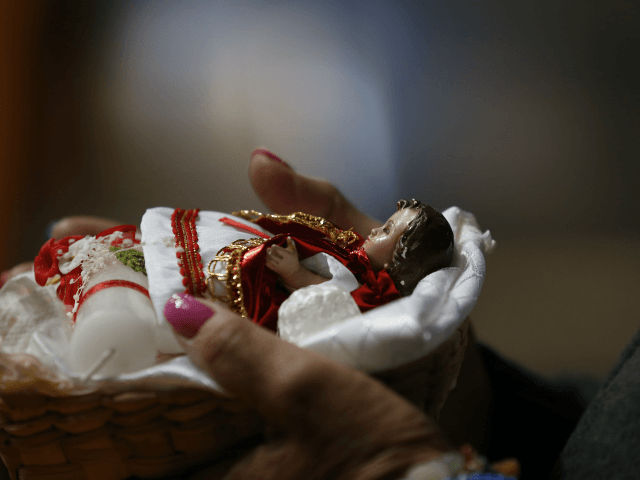A remarkable 66 percent of U.S. adults believe that Jesus was miraculously born to the Virgin Mary, the Pew Research Center announced Tuesday.
In its Christmas day Tweet, Pew underscored the declining percentage of Americans who believe in the biblical account of the birth of Jesus Christ at Bethlehem, but perhaps more astonishing is the very large share of U.S. citizens who still believe in these events, even among the religiously unaffiliated.
A shrinking majority of Americans believe that the biblical account of the birth of Jesus depicts actual historical events: https://t.co/7GztpSB9h1 pic.twitter.com/pVRi6AY1fl
— Pew Research Religion (@PewReligion) December 25, 2018
Pew was drawing on a survey carried out in 2017, which found that the percentage of Americans who believe in the details surrounding the birth of Christ had dropped in the three-year period from 2014 to 2017.
Despite this decline, a full three quarters (75 percent) of Americans still believe that the baby Jesus was laid in a manger at Bethlehem and 68 percent believe that three wise men from the East brought Jesus gifts.
More than two-thirds (67 percent) believe that an angel appeared to shepherds, announcing the birth of Jesus at Bethlehem, roughly the same percentage as those who believe in the virgin birth.
All told, a significant majority of Americans of any faith or no faith (57 percent) believe in all four of the elements of the Christmas story highlighted by Pew.
Even among millennials, whom studies have shown to be much less religious than earlier generations of Americans, belief in each of the four components of the Nativity account exceeds 50 percent.
Pew found that 55 percent of millennials believe in the virgin birth, 54 percent believe that an angel announced Jesus’ birth to shepherds, 57 percent believe that the three magi came bringing him gifts, and 65 percent believe that the infant Jesus was laid in a manger.
According to the study, 90 percent of the U.S. population still celebrates Christmas as a holiday, and a slight majority (51%) say they plan to attend religious services on Christmas Eve or Christmas Day.
Pew also found a clear divide along partisan lines, with nearly two-thirds of Republicans saying they would attend church on Christmas (65 percent), while among Democrats, less than half (45 percent) said they planned on attending religious services.
Follow Thomas D. Williams on Twitter Follow @tdwilliamsrome

COMMENTS
Please let us know if you're having issues with commenting.